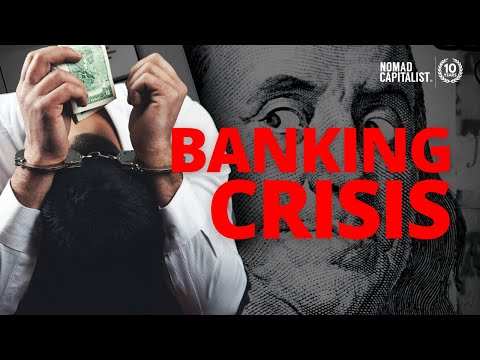The Safest Banks In The World
December 4, 2024
In the wake of the recent failures of Silicon Valley Bank, Signature Bank, Silvergate, and Moody’s downgrade of US banks, it’s clear that diversifying your risk and assets is more critical than ever.
In 2008, 25 banks with $373 billion in combined assets failed in the US. So far, in 2023, two banks with $319 billion in combined assets have failed.
What other evidence do you need to recognize the importance of diversifying your wealth across the globe?
The US economy and banks are shakier than a game of Jenga; the slightest thing rocking it could cause it all to topple again.
It’s high time to make a bold move and move your cash out of the country.
We understand your concerns about bank safety in this unpredictable financial landscape, and that’s precisely why we’ve crafted this solid list to help you safeguard your wealth.
Now’s the time to gear up and get prepared with a Nomad Capitalist “Action Plan.”
How To Know If A Bank Is Safe?
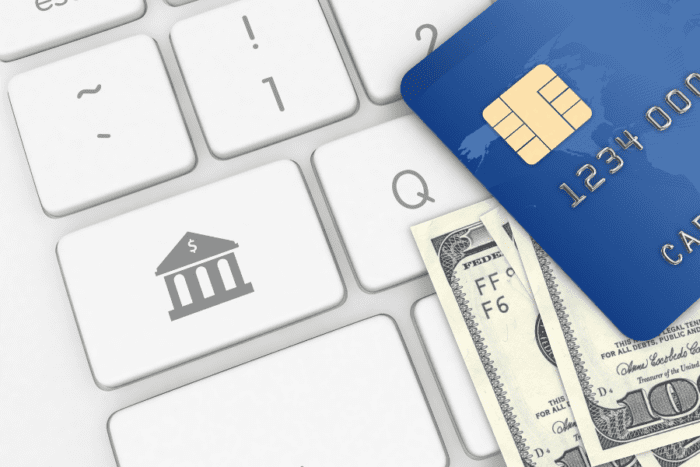
Insurance
Deposit insurance protects your money in the event of a bank failure.
Different countries have different deposit insurance schemes, so it’s essential to research the specific protections for each bank.
Deposit insurance is a financial safety net designed to protect depositors’ money in the event of a bank failure.
The concept of deposit insurance originated in the United States with the establishment of the Federal Deposit Insurance Corporation (FDIC) in 1933 in response to widespread bank failures during the Great Depression.
The FDIC insures deposits in member banks up to $250,000 per depositor, per insured bank, for each account ownership category.
However, it is essential to be aware of the limitations of deposit insurance, as not all types of accounts may be covered, and the insured amount may not be sufficient to cover all deposited funds.
A case in point is the collapse of Silicon Valley Bank, where 93% of deposits were not insured, as they exceeded the FDIC’s $250,000 coverage limit.
This eye-opening situation underscores the significance of embracing the Nomad Capitalist “Action Plan” by diversifying your assets and strategically distributing your risk across various banks, asset classes, and jurisdictions.
Credit Rating
Credit ratings assess a bank’s financial strength and stability.
The higher a bank’s credit rating, the safer it is considered. Look for banks with high credit ratings from well-respected rating agencies like Standard & Poor’s, Moody’s, and Fitch.
However, it’s crucial to tread cautiously and not place blind faith in these rating agencies, as history has shown that even the experts can get it spectacularly wrong.
Notable examples include the 2008 financial crisis, during which rating agencies failed to accurately assess the risks associated with mortgage-backed securities, contributing to the collapse of major banks like Lehman Brothers.
Moreover, rating agencies also misjudged the sovereign debt crises in Greece and Ireland, leading to significant financial losses for those who relied on their assessments.
Capital Adequacy
Capital adequacy measures a bank’s ability to withstand financial shocks and absorb potential losses.
Banks that maintain strong capital ratios demonstrate a better capability to handle financial crises.
Even institutions with seemingly robust capital adequacy can falter under extreme circumstances, underscoring the importance of considering multiple factors when evaluating a bank’s safety.
A prime example of a bank failure despite seemingly strong capital adequacy is the case of Silicon Valley Bank, as previously mentioned.
The bank’s collapse revealed that many of its deposits were not insured, resulting in substantial customer losses.
Another example is Washington Mutual, the most significant savings and loan institution in the United States, which failed in 2008 during the global financial crisis.
Washington Mutual’s aggressive lending practices and overexposure to the subprime mortgage market led to its downfall, even though it was considered well-capitalized based on regulatory standards before the crisis.
Asset Quality
A bank’s asset quality refers to the creditworthiness of its borrowers and the overall quality of its loan portfolio.
High-quality assets indicate a lower risk of default, which is essential for a bank’s stability.
Nonetheless, even banks that appear to possess top-notch assets may be vulnerable to hidden risks from certain sectors that aren’t readily noticeable.
Silicon Valley Bank (SVB) had a reputation for innovation and catering to the tech industry and had significant exposure to riskier assets.
Many of its clients were involved in venture capital firms, tech startups, and fintech companies, which tend to be more speculative.
This concentration in a specific, high-risk sector made the bank more vulnerable to economic shocks affecting these industries.
Furthermore, many of SVB’s clients were using the bank for payroll and other essential services, which exacerbated the impact of the bank’s failure on these businesses and their employees.
Liquidity
Liquidity is a bank’s ability to meet financial obligations, such as withdrawals and loan payments. Banks with solid liquidity can better manage periods of financial stress.
One example of a bank failure due to liquidity issues is the collapse of IndyMac Bank in the United States in 2008.
A run on the bank led to a rapid depletion of its liquidity, ultimately resulting in its failure.
Stability And Track Record
A long history of stability and a good track record are essential indicators of a safe bank.
Look for banks with a history of weathering financial crises and maintaining solid financial performance.
It’s important to remember that even with thorough research and careful selection, there are no guarantees.
The collapse of Lehman Brothers in 2008, for instance, was a massive shock to the global financial system, and many considered it unthinkable at the time.
The lesson from such cases is never to take things at face value. Instead, always research banks carefully, choose the best reputation, and be prepared for the unexpected.
Spreading risk and diversifying your banking relationships are crucial for mitigating potential losses.
Offshore banking adds an extra layer of protection in this regard. For example, many offshore banks are less susceptible to contagion, particularly those with less exposure to the US financial system or other volatile markets.
By diversifying your assets across multiple jurisdictions and banking systems, you can further insulate your wealth from the risks associated with a single country or financial institution.
Key Factors To Consider When Choosing An International Bank
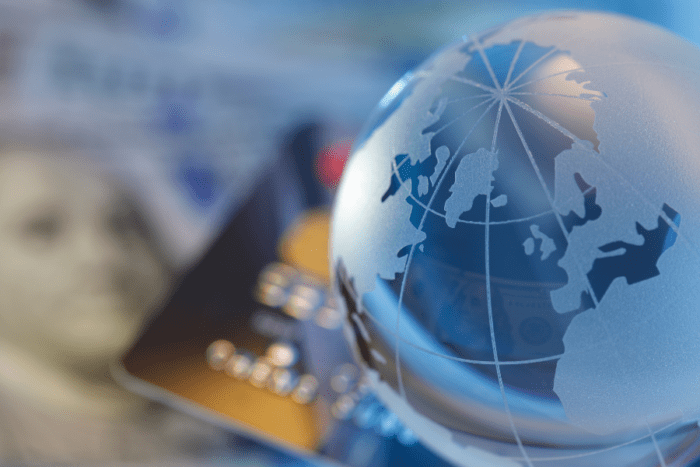
Ease of Account Opening
Opening a bank account should be straightforward.
Look for banks that make it easy for international clients to open an account and provide clear guidance on the required documentation.
If you’re seeking expert guidance on opening bank accounts in multiple jurisdictions worldwide, remember that we’ve helped thousands of entrepreneurs and investors successfully navigate this process.
Don’t hesitate to reach out to our team for personalized advice and support. Contact us today to take the first step towards securing your financial future with the world’s safest banks.
Multi-Currency Accounts
For high-net-worth individuals with assets abroad, multi-currency accounts are essential.
These accounts allow you to hold, send, and receive funds in multiple currencies, providing flexibility and minimizing currency risk. Never keep all your eggs in one basket.
Deposit Insurance
As recent events have shown, you cannot underestimate the value of having deposit insurance. So before you even consider banking in a foreign country, the first thing you should be checking is whether the bank is located in one of the countries that offer deposit insurance.
In addition to knowing what the country’s standard deposit insurance amount is, you should then also talk to your bank to see what additional protections and guarantees they offer that help to better protect your money. You also need to ensure that you have a direct human contact you can call should any emergencies arise.
Banking Services & Support
Excellent customer service is crucial, especially when dealing with international banks.
Choose a bank that provides responsive and knowledgeable customer support to address your needs and concerns.
As mentioned, you want to ensure you have a direct contact you can speak to in an emergency. But more importantly, you want to have proper representation, someone who will nurture you as a client, providing assistance and advice as required, and who clearly understands your needs and the needs of your business.
Online Banking Services
And while the human touch is important, sometimes you want to be able to bypass it and remotely manage things as swiftly as possible. And this is where online banking services come into play.
Complete online banking services with multi-factor authentication are vital for managing global finances.
Ensure the bank offers user-friendly online and mobile banking platforms with features like account monitoring, transfers, and bill payments.
You’ll also want to look closely at transfer limits and times if you need to move your money from one account to another quickly.
Offshore Banking Benefits For High-Net-Worth Individuals

Tax Efficiency
Offshore banks often provide tax advantages, such as reduced tax liabilities and improved tax planning strategies.
You can optimize your tax situation by diversifying your assets across multiple jurisdictions.
Asset Protection
Offshore banking provides a layer of protection against political and economic instability, litigation, and other threats to your wealth.
Holding assets in a safe and stable jurisdiction can safeguard your wealth for future generations.
Currency Diversification
Currency diversification helps mitigate the risks associated with fluctuations in exchange rates.
By holding assets in multiple currencies, you can protect your wealth from currency devaluations and take advantage of favorable exchange rates.
Investment Opportunities
Offshore banks often provide access to a broader range of investment opportunities, including international stocks, bonds, and real estate.
By diversifying your investment portfolio, you can achieve higher returns and reduce risk.
Top Safest Banks in the World
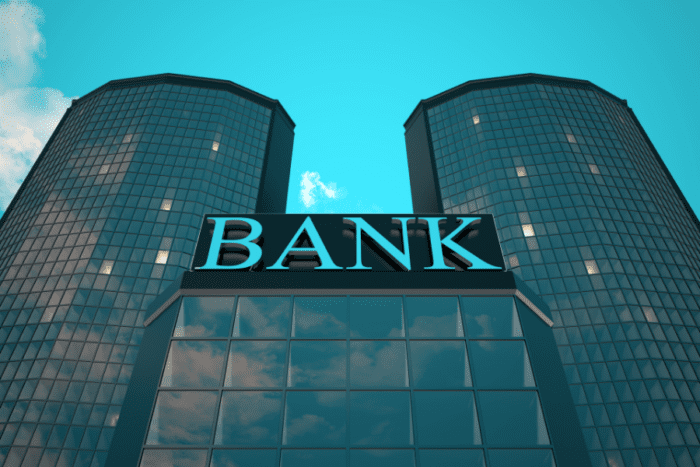
By opening a bank account with these elite institutions, you’re placing your hard-earned wealth in the hands of the world’s safest banks, like a true Nomad Capitalist.
Their stellar credit ratings, rock-solid financial foundations, and government support all reinforce their reputations as secure havens for stashing your assets and safeguarding your financial future.
By opening a bank account with these elite institutions, you’re placing your hard-earned wealth in the hands of the world’s safest banks, like a true Nomad Capitalist.
These rankings are based on aggregate scores from the top rating agencies (such as Moody’s, S&P, and Fitch) and other factors.
Their stellar credit ratings, rock-solid financial foundations, and government support all reinforce their reputations as secure havens for stashing your assets and safeguarding your financial future.
However, it is essential to note that, although widely used as a benchmark for banking stability, these rating agencies are not infallible.
While the World’s Safest Banks rankings are a helpful starting point, it is also important to conduct your research and evaluate additional factors such as the bank’s jurisdiction, range of services, quality of customer service, and alignment with your financial goals and values.
Best Banks in Europe
KfW Bank (Germany)
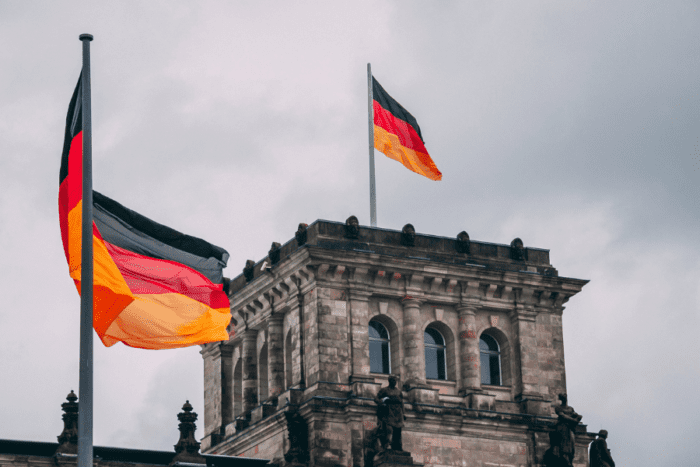
KfW Bank, short for Kreditanstalt für Wiederaufbau, is a state-owned development bank in Germany that takes security very seriously.
Established in 1948, KfW Bank’s primary goal is to support domestic and international economic development.
With an excellent credit rating and strong backing from the German government, KfW Bank ranks as the safest bank globally.
The bank focuses on financing projects in renewable energy, small and medium-sized enterprises, and infrastructure.
Zürcher Kantonalbank (Switzerland)

Zürcher Kantonalbank, or ZKB, is the largest cantonal bank in Switzerland, wholly owned by the Canton of Zurich.
Established in 1870, it provides various banking services and account options, including personal and business banking, wealth management, and investment services.
ZKB is known for its strong credit ratings and solid financial foundation, partly due to Switzerland’s stable political and economic environment.
The bank operates under strict Swiss banking regulations, ensuring a high level of security and confidentiality for its customers.
Landwirtschaftliche Rentenbank (Germany)

Landwirtschaftliche Rentenbank is another German bank with an excellent credit rating, focusing primarily on the agricultural sector.
Founded in 1949, it’s one of the smaller banks on our list regarding total assets. It operates as a development bank, providing financial support to farmers and agribusinesses in Germany and throughout the European Union.
Landwirtschaftliche Rentenbank’s high credit ratings reflect its strong financial position and the backing of the German government, so you know it’s doing a lot to keep your money safe.
L-Bank (Germany)

L-Bank, or Landeskreditbank Baden-Württemberg Förderbank, is a state development bank in Germany, serving the state of Baden-Württemberg.
Established in 1998, L-Bank provides financial support for small and medium-sized businesses, infrastructure projects, housing, and social initiatives.
L-Bank stands among the world’s most secure banks, renowned for its strong credit ratings and unwavering financial solidity.
Bank Nederlandse Gemeenten (Netherlands)

Bank Nederlandse Gemeenten (BNG) is a Dutch public sector bank established in 1914.
It primarily serves local and regional authorities, public housing corporations, and healthcare and educational institutions.
With a strong focus on sustainability, BNG is committed to financing projects that contribute to a sustainable and livable society.
The bank boasts a high level of creditworthiness, quickly making it one of the safest banks in the world.
Best Banks in Asia
DBS Bank (Singapore)
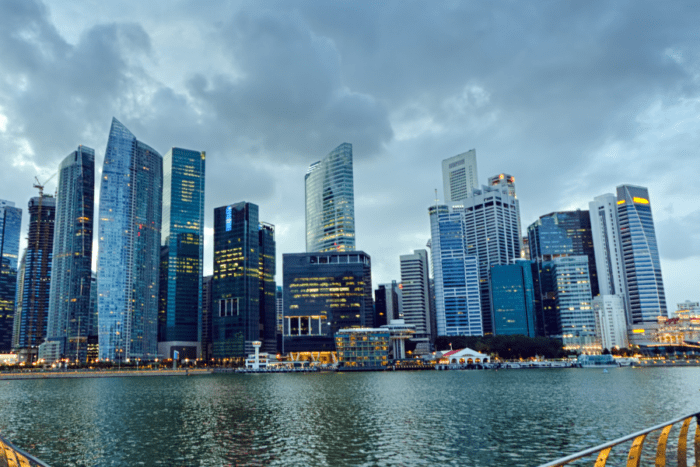
DBS Bank is a leading financial institution headquartered in Singapore, established in 1968.
As the largest bank in Southeast Asia by assets, DBS serves a diverse range of customers, including individuals, small and medium-sized businesses, and large corporations.
Known for its innovation and commitment to digital banking, DBS strives to make banking simple, fast, and convenient for its customers.
The bank has received numerous awards and accolades for its services, solidifying its reputation as a leading banking provider.
Oversea-Chinese Banking Corp (Singapore)
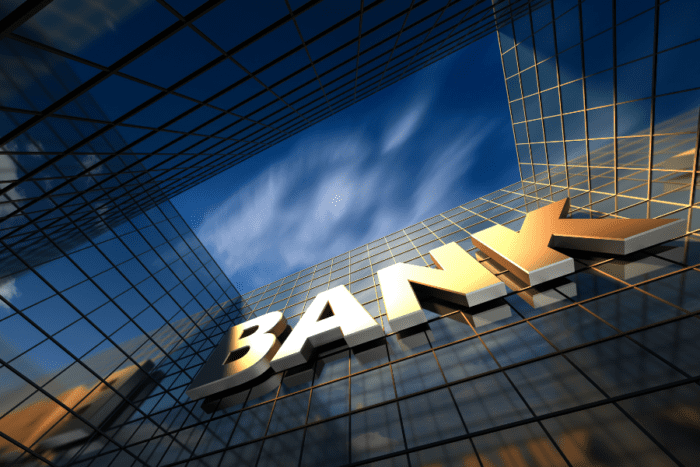
As one of the largest banks in Southeast Asia by assets, Oversea-Chinese Banking Corporation (OCBC) is a leading financial institution based in Singapore, established in 1932.
OCBC has an extensive network of branches and offices spanning 19 countries and territories.
In line with its commitment to sustainability and corporate responsibility, OCBC supports initiatives that promote economic growth, social development, and environmental conservation within the region.
The bank continuously invests in innovation and digital transformation to enhance customer experience and streamline banking processes.
United Overseas Bank (Singapore)
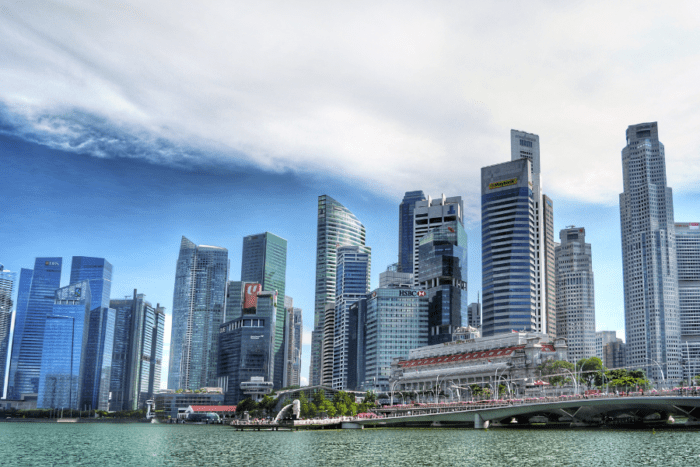
United Overseas Bank (UOB) is a prominent financial institution headquartered in Singapore, established in 1935.
Its financial products and services encompass retail banking, corporate and investment banking, wealth management, and insurance solutions.
Thanks to its solid financial position, sound risk management practices, and stringent adherence to regulatory requirements, United Overseas Bank enjoys a high level of creditworthiness, making it one of the safest banks in the world.
Best Banks in the Middle East
First Abu Dhabi Bank (United Arab Emirates)
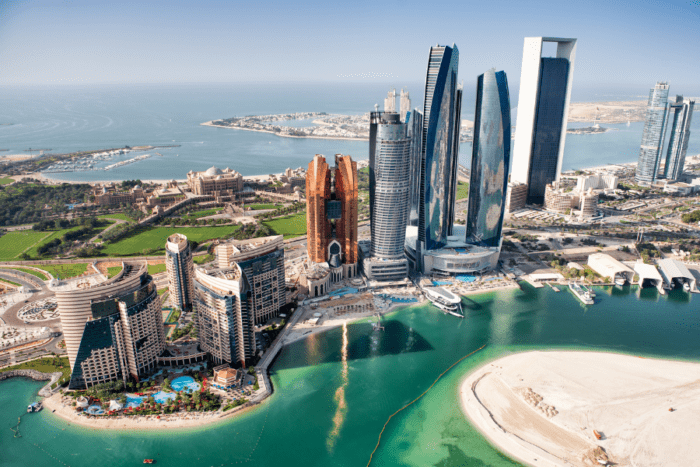
First Abu Dhabi Bank (FAB) is the largest bank in the United Arab Emirates, established in 2017 as a result of a merger between the National Bank of Abu Dhabi and First Gulf Bank.
FAB is committed to supporting the growth and development of the UAE and the wider region.
The bank offers a comprehensive suite of products and services, including retail banking, corporate and investment banking, wealth management, and Islamic banking solutions.
Qatar National Bank (Qatar)
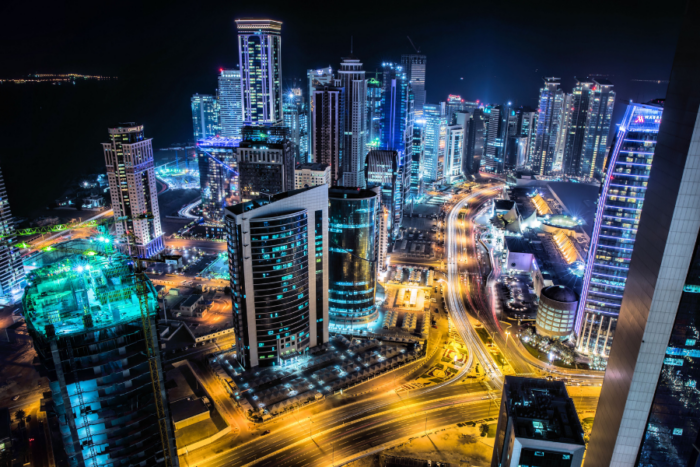
Qatar National Bank (QNB) is a leading financial institution based in Doha, Qatar, and was founded in 1964.
QNB boasts a significant regional and international presence, with an extensive network of branches and offices in over 30 countries spanning three continents.
Committed to sustainable practices and corporate responsibility, QNB supports initiatives that foster economic growth, social development, and environmental stewardship in the region.
Qatar National Bank’s stable financial standing, prudent risk management strategies, and strict compliance with regulatory guidelines contribute to its notable creditworthiness, securing its position as one of the safest banks in the world.
Where Do The US Banks Stand?
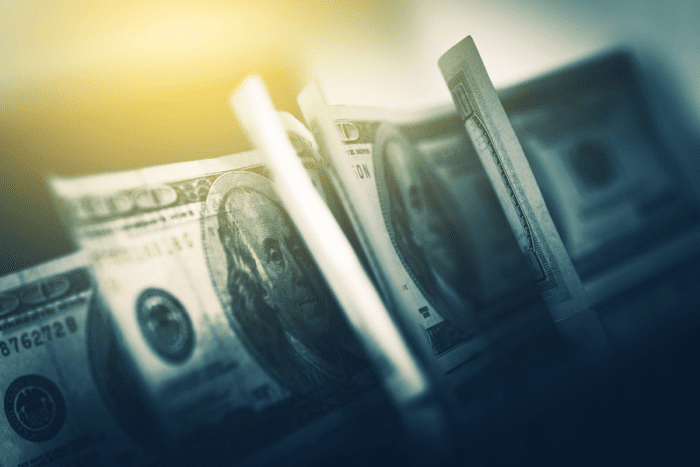
So, where do US banks stand in this grand scheme of financial fortresses?
Well, let us break it to you: they don’t even crack the top 40 list in the world. Shocking, right?
But let’s dive into the reasons behind this and discuss why moving your hard-earned wealth abroad to more secure and reliable banks is essential.
The US has some big players in global finance, like Wells Fargo, but they don’t hold a candle to the safest banks around the world.
One reason is that many US banks, including the mighty Wells Fargo, have faced scandals and fines, shaking the trust of their customers and making them question the security of their bank accounts.
Profits Before Clients
Another reason US banks need to catch up in the race is that they often focus more on boosting their profits and pleasing shareholders than ensuring top-notch security features and financial stability for their clients.
Of course, they should be providing value to their shareholders, but never at the expense of providing a good service. (We’re just old-fashioned that way.)
It starkly contrasts the safest banks, prioritizing protecting their customers’ assets and maintaining a rock-solid foundation.
It’s also worth noting that the US banking system is quite fragmented, with numerous smaller players like farm credit banks and credit unions.
While these institutions might offer personalized services and cater to local needs, they often need more financial muscle and international presence to compete with the world’s safest banks.
FDIC Insured
Additionally, FDIC insurance in the US only covers up to $250,000 per depositor per bank.
And while that’s higher than in many other countries, let’s be honest: that’s hardly enough for high-net-worth individuals looking to safeguard their wealth.
On top of that, the FDIC’s coverage isn’t foolproof, as we’ve seen during the 2008 financial crisis when the system came under immense strain.
So, what’s the bottom line for those striving to live the Nomad Capitalist lifestyle? It’s time to look beyond the US banking system and explore safer options abroad.
By moving your money to banks listed among the world’s safest, you’re protecting your wealth and opening doors to a world of new opportunities in global finance and business.
When you diversify your assets across multiple banks worldwide, you’re mitigating the risk of being tied to just one financial system.
This approach lets you tap into the benefits offered by different banking jurisdictions, ensuring a safety net for your finances.
Consider this: the world’s safest banks boast higher credit ratings, better capital adequacy, and more stringent regulatory requirements.
And, unlike their US counterparts, these banks put their customers first, focusing on preserving their wealth and providing top-notch security features.
If you’re eager to explore offshore banking and find ways to protect your assets while legally reducing your taxes, talk to us about creating a personalized “Action Plan” tailored to your needs.
FAQs
Choosing a safe bank is essential to protect your wealth from potential bank failures, financial crises, and currency devaluations.
Diversifying your assets across the safest banks can minimize risk and safeguard your hard-earned money.
Banking with international institutions allows you to diversify your assets geographically, minimize exposure to a single country’s economic and political risks, and access a broader range of investment opportunities, financial products, and services.
You can diversify your financial assets by holding accounts in multiple safe banks, investing in different asset classes (e.g., stocks, bonds, real estate), and spreading your investments across various countries and currencies.
Determining the safest private bank can vary depending on factors. Some well-regarded private banks include Julius Baer, Pictet, and UBS.
Still, conducting thorough research and comparing different private banks is essential to find the safest option for your specific needs.
Conclusion
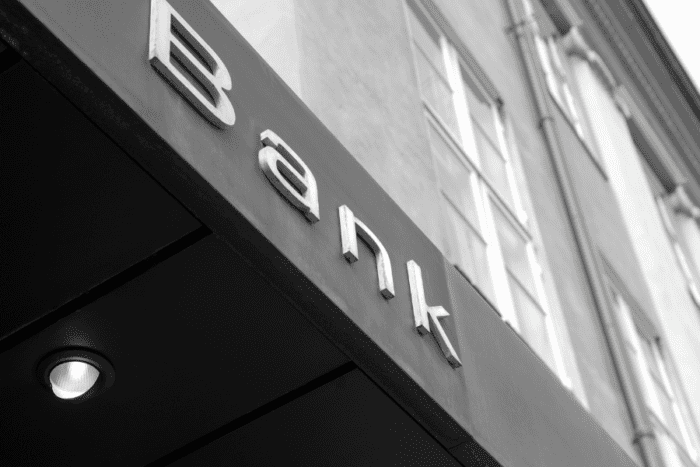
Choosing the safest banks in the world and moving your finances offshore are more crucial than ever.
You can achieve financial freedom and peace of mind by diversifying your assets, optimizing your tax situation, and protecting your wealth.
The world of offshore banking can be complex, but the expert guidance of Nomad Capitalist can help you navigate it confidently.
Don’t wait for the next financial crisis to hit.
Take control of your financial future and protect your wealth by choosing the safest banks in the world. Contact Nomad Capitalist today, and let us guide you through the process of moving your finances offshore. It’s time to take action and secure your financial future.


Does Puerto Rico Pay Taxes to the US?
It’s a common question and one that often fuels confusion, debate, and a fair share of misinformation – Do residents of Puerto Rico actually pay US federal taxes? When most people think of US tax obligations, they naturally assume they apply uniformly across all US citizens. But when it comes to Puerto Rico, things are […]
Read more

Zug Canton Taxes: The Ultimate Destination for Wealth Management in Switzerland
Switzerland’s global reputation is built not just on stunning views of Alpine peaks and serene lakes but also on a foundation of exceptional quality of life, world-class infrastructure and investor-friendly tax policies. The results speak for themselves: efficient public transport seamlessly links cities and villages; the standard of living regularly ranks among the highest in […]
Read more

How Smart Investors Use Venture Capital to Build Wealth
Big companies like Google, Amazon, Facebook and Apple all started out as bold ideas backed by venture capital. Decades later, the same firms are household names, as familiar to most people as electricity, the internet, or the telephone. But hindsight is a fickle friend. The truth is, it wasn’t always so obvious they’d succeed. These […]
Read more





